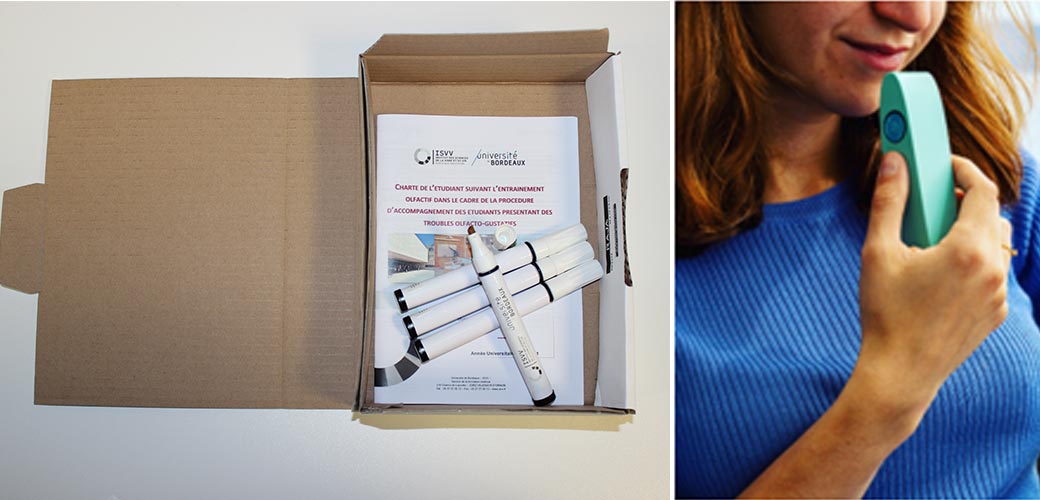Anosmia and tasting: ISVV takes action!
What can you do when you lose your sense of smell and your training or expertise is based on tasting? The Institut des sciences de la Vigne et du Vin is taking action.
The COVID-19 health crisis highlighted the social and psychological difficulties encountered by people with olfaction and taste disorders. It should be remembered, however, that these disorders affect between 5% and 15% of the general population outside of health crises, and have multiple causes. The impact of these deficits can affect both the personal and professional spheres. Oenologists, sommeliers, cooks, perfumers and flavourists, among others, are directly affected in the course of their work.
Since the beginning of the crisis, the industry has been mobilising to try and help and support professionals affected by these problems. One example is the international survey launched by the UFOE (Oenologists of France) in spring 2020 to take stock of these problems.
The Institut des Sciences de la Vigne et du Vin is also committed to its students (Licences, Diplôme National d'Œnologue, Masters, University diplomas etc...) by offering them a support and recovery protocol.
With the support of the University of Bordeaux and its medical services, the objective of the ISVV teaching team is, firstly, to listen to its students and remove the taboos surrounding olfactory and gustatory disorders for future professionals in the sector. Secondly, the aim is to help students recover their faculties useful to their apprenticeship and profession as quickly as possible.
Thanks to the protocol put in place, the student is guided in the steps and actions to be taken in addition to specific consultations with an ENT specialist, which enable a personalised diagnosis to be made. This is based on recognised olfacto-gustatory tests, an assessment of memory and sensory experience, coupled with a clinical examination. It also provides information and reassurance about the student's ability to recover.
Because yes, recovery is possible. The teaching team has therefore produced a training booklet for its students to supplement the lessons and information given on the problems of sensory disorders. The aim of this booklet is to guide and encourage students to devote a few minutes a day to their training. Bear in mind that it's not always easy to maintain a positive frame of mind when you can't see any regular improvement in your olfactory acuity. This original document proposes a variety of exercises to limit the effect of weariness on the person involved in this approach (Cf. Support booklet for training in the management of olfacto-gustatory disorders).
The exercises proposed are based on ISVV expertise in olfacto-gustatory learning, as well as scientific work in the clinical environment and published by international research teams. The use of this booklet has been validated by the ENT doctor involved in the follow-up of ISVV students. The exercises are based on repeated exposure to odorants, olfactory mental imagery (the ability to mentally imagine odours) and associative tasks (see 4 steps to follow if you think you have olfaction problems). It should be noted that these exercises can have physiological, neurophysiological and cognitive effects that optimise the possible recovery of olfactory acuity, but are in no way a guarantee of recovery time or recovery rate.
In addition to the booklet, ISVV provides each student involved in this re-education process with an olfactory kit to support their daily training. The kit is made up of different essential oils selected on the basis of specific scientific research into these issues. The odorants selected change as the student recovers. The kits produced by ISVV come in the form of olfactory pens (Sniffinsticks© - Burghart) or the portable PtitSniff© diffuser (https://www.leptitsniff.paris/). These tools are recognised in the world of olfaction and are designed to enable controlled and safe diffusion of odorants.
 4 steps to follow if you think you have olfactory problems
4 steps to follow if you think you have olfactory problems
 Management of olfacto-gustatory disorders - Training guide
Management of olfacto-gustatory disorders - Training guide
Teaching tasting, ISVV adapts - Discover the ISVV tasting protocol




